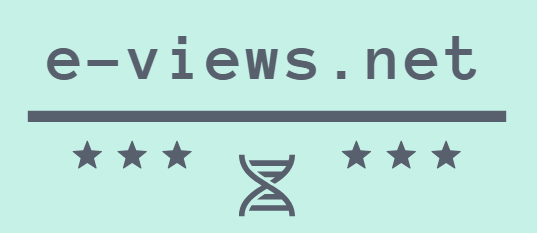You're likely aware that boosting your site's SEO doesn't have to drain your bank account. Instead, by focusing on strategic optimizations, you can enhance your online presence without breaking the bank. Have you ever wondered how tweaking on-page elements, using free tools, and crafting content can make a difference? Or how you can leverage social media and smart backlink strategies to climb search engine rankings? These wallet-savvy tricks can revolutionize your approach to SEO, but how exactly can you implement them effectively? Let's explore the potential these strategies hold for your digital success.
Optimize On-Page Elements
To maximize your website's visibility, optimizing on-page elements is crucial. You'll start by focusing on title tags, which are a primary ranking factor. Craft compelling, keyword-focused titles under 60 characters to boost click-through rates.
Analyze your meta descriptions too; though not a ranking factor, they influence user behavior. Write concise, 155-character summaries that include your target keywords and entice users to click.
Next, ensure your headings (H1, H2, H3) are structured logically and incorporate relevant keywords. This improves both user experience and search engine understanding of your content.
Don't overlook URL optimization—short, descriptive URLs perform better in search results. Use hyphens instead of underscores to separate words, and keep them under 100 characters.
Content is king, but only if it's optimized. Aim for a keyword density of about 1-2%, and utilize LSI (Latent Semantic Indexing) keywords to add contextual relevance. Regularly update content to keep it fresh and engaging.
Lastly, don't ignore image optimization; compress images for faster loading times and use descriptive, keyword-rich alt tags. These steps, grounded in data and best practices, will significantly enhance your site's SEO performance.
Leverage Free Online Tools
Harnessing the power of free online tools can dramatically enhance your SEO strategy without straining your budget. Start with Google Analytics to track your website's traffic and user behavior. This tool provides data on where your visitors come from, what keywords they use, and how they navigate your site.
Armed with this information, you can fine-tune your SEO tactics to align with user search intent and optimize for high-impact keywords.
Google Search Console is another essential tool that helps you monitor your site's performance on Google Search. It provides insights into how often your site appears in search results, click-through rates, and any indexing issues that might hinder visibility.
Use these insights to identify opportunities for improvement.
For keyword research, try Ubersuggest or Google's Keyword Planner. These tools help you find relevant keywords with high search volume and low competition, making it easier to rank in search engines.
Don't overlook SEO audit tools like Screaming Frog's SEO Spider. Even in its free version, it helps you identify broken links, duplicate content, and other on-page issues.
Create Quality Content

Analyzing the data from online tools lays the groundwork for a robust SEO strategy, but the creation of quality content is where you truly engage and retain your audience.
First, focus on keyword research. Identify the terms your audience searches for and weave them naturally into your text. Use tools like Google Keyword Planner or SEMrush to find high-volume, low-competition keywords. Prioritize these in your headers, subheaders, and throughout your content.
Next, ensure your content is original and valuable. Search engines favor unique content that provides solutions or insights. Analyze competitors' content to understand what's missing and fill that gap with your own expertise.
Keep your writing clear, concise, and relevant, avoiding fluff that dilutes your message.
Structure matters too. Break your text into digestible sections with subheadings and bullet points to enhance readability.
Utilize analytics to track engagement metrics like time on page and bounce rate. These insights can guide improvements, helping you refine your strategy.
Build Backlinks Economically
Although building backlinks can seem daunting, tackling it economically is entirely feasible with a strategic approach.
Begin by leveraging guest blogging opportunities. Target websites within your niche that have high domain authority. This method is cost-effective and can improve your site's SEO significantly. According to a study by Ahrefs, websites with high-quality backlinks rank higher, as backlinks are a critical factor in Google's ranking algorithm.
Next, consider broken link building. Use tools like Ahrefs or SEMrush to find broken links on relevant websites. Reach out to the site owner, informing them about the broken link, and suggest your content as a replacement. This tactic not only aids in relationship-building but also enhances link acquisition with minimal costs.
Furthermore, create shareable content such as infographics or data-driven articles. Content that provides value and is visually appealing tends to earn more organic backlinks. BuzzSumo's research highlights that infographics are shared three times more than other content types, driving more backlinks.
Utilize Social Media Platforms

Engaging with social media platforms is a dynamic way to enhance your SEO strategy. By leveraging platforms like Facebook, Instagram, and Twitter, you can increase website traffic and improve your search engine rankings. Social signals, such as shares, likes, and comments, are key indicators for search engines, signaling content relevance and user engagement. These interactions can indirectly boost your site's visibility and authority, making social media an invaluable tool in your SEO arsenal.
To maximize results, focus on creating shareable, keyword-rich content tailored to your audience's interests. Analyze your target demographics to determine which platforms they frequent most. For instance, if your audience is primarily millennials, Instagram and TikTok might offer the most traction.
Utilize tools like Google Analytics and social media insights to measure traffic sources and user behavior, refining your strategy based on data-driven insights.
Don't neglect the power of hashtags and trending topics. They enhance discoverability, allowing your content to reach a broader audience. Additionally, engaging with influencers in your industry can amplify your reach. Collaborations can introduce your brand to new followers, generating quality backlinks and improving SEO rankings.
Integrating social media strategically into your SEO plan offers cost-effective ways to boost visibility.


Leave a Reply